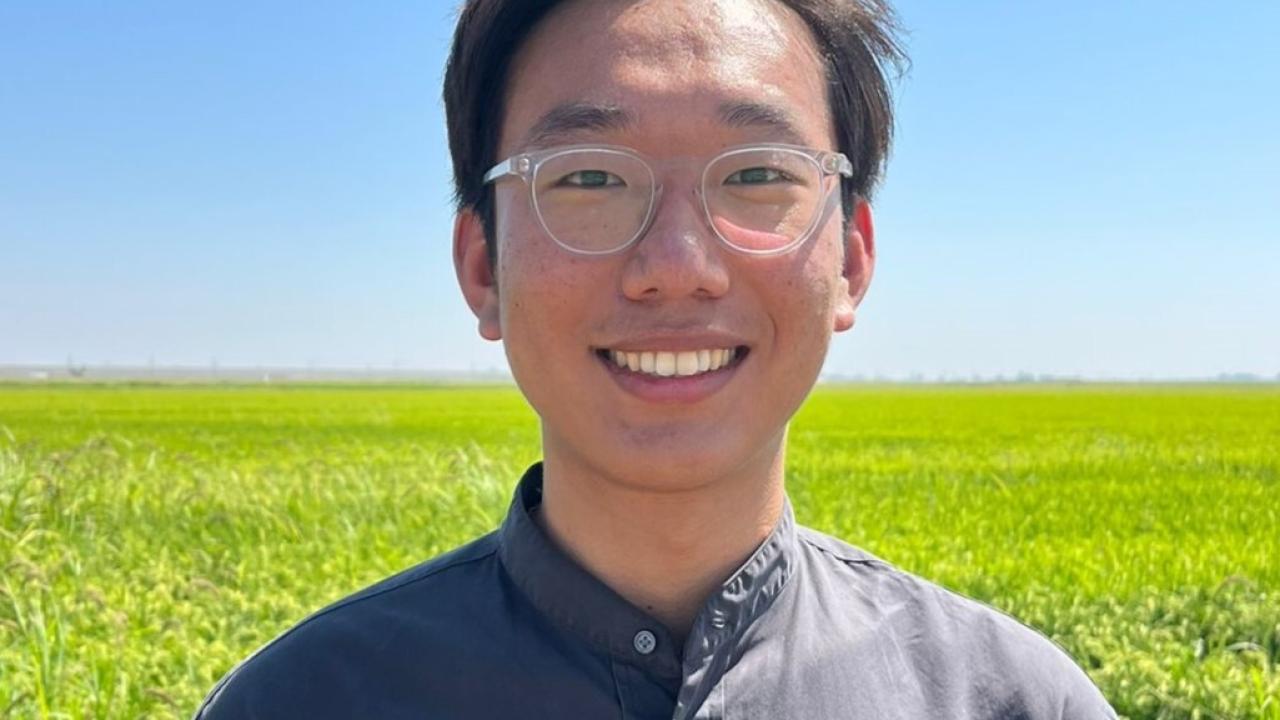
Kinsella Memorial Prize Goes to Zhenglin Zhang
Now at Stanford, Zhang Continues to Collaborate with UC Davis
Zhenglin Zhang, a March graduate known as a gifted researcher dedicated to agricultural sustainability, is the winner of the 2025 Kinsella Memorial Prize.
Zhang, who is now a postdoctoral scholar at Stanford University, earned his bachelor’s degree and Ph.D. at University of California, Davis, where he researched rice crops and how erratic weather and fallowed fields affected methane emissions and nitrogen cycling. He studied in the lab of Bruce Linquist, a Cooperative Extension specialist in the Department of Plant Sciences.
“I want to say thank you because it takes a village to cultivate a Ph.D. student,” Zhang said. “I’m super grateful to my colleagues, to Bruce, who has been an exceptional mentor, and the scientists I’ve met along the way.”
The Kinsella prize is named for the late food chemist and former College of Agricultural and Environmental Sciences Dean John E. Kinsella. It comes with a $3,500 award and honors graduate students whose Ph.D. dissertation is original, of high quality and multidisciplinary.
“To end my Davis chapter with an award I think is a recognition of the work that I’ve done and what the school has given me, and what I’ve given back to the scientific community,” Zhang said.
Professor Amélie Gaudin, who chairs the graduate group in horticulture and agronomy, called Zhang a rising star with a strong work ethic who is an inclusive leader, a strong scientific communicator and dedicated collaborator.
“Zhenglin’s intellectual curiosity, motivation, and desire to pursue relevant research will serve
him well as a scientist,” Gaudin wrote in a letter nominating him for the award. “On multiple occasions, he has shown that participating actively in the scientific and wider communities is an integral part of his approach to research.”
He also presented at more than a dozen scientific and research conferences and received many awards, scholarships and a fellowship during his time at UC Davis.
At Stanford, Zhang continues to focus on methane issues, including ways to suppress and measure emissions. He is also evaluating how the combination of sulfate and drainage can reduce emissions.
“His nascent collaboration with Stanford University has paved the way to continued collaboration in his next steps to validate a low-cost methane sensor,” Gaudin wrote. “This is quite remarkable and indicates scientific maturity, interdisciplinary thinking and a clear dedication to agricultural sustainability.”
Media Resources
- Zhenglin Zhang, Stanford University, zhangzhenglin2005@gmail.com
- Emily C. Dooley, College of Agricultural and Environmental Sciences, ecdooley@ucdavis.edu